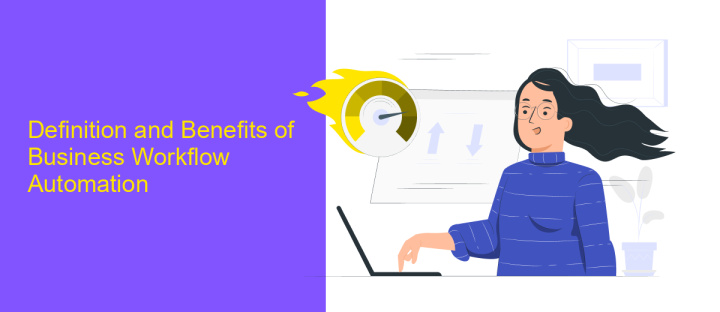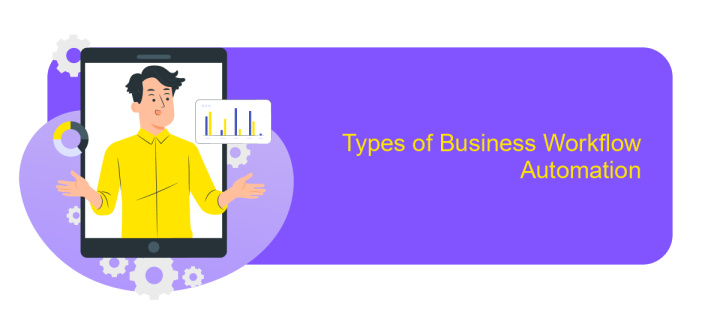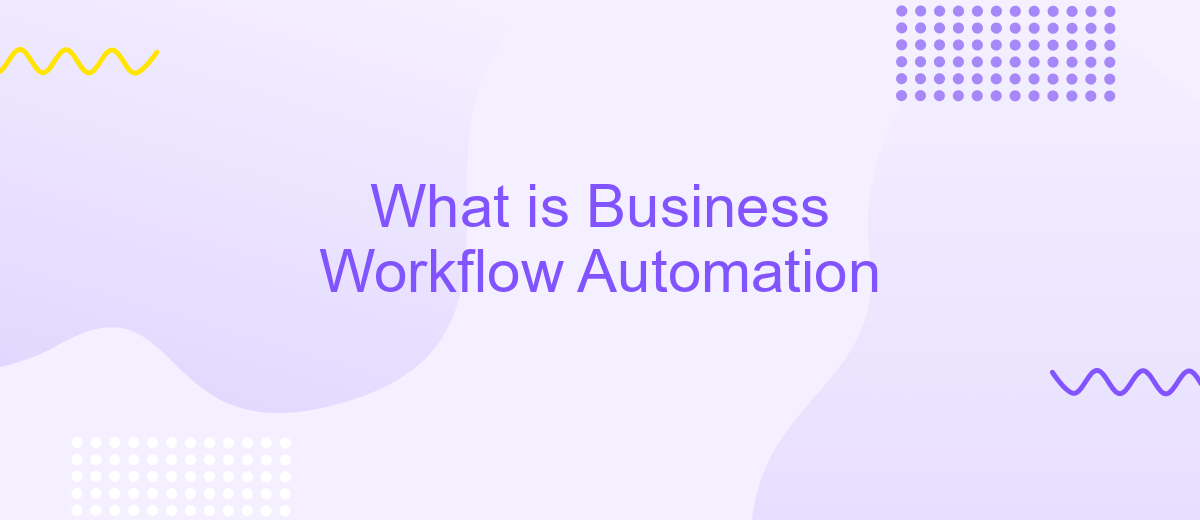What is Business Workflow Automation
Business workflow automation is the use of technology to streamline and optimize complex business processes, reducing manual effort and increasing efficiency. By automating repetitive tasks, organizations can improve accuracy, save time, and focus on higher-value activities. This article explores the fundamentals of business workflow automation, its benefits, and how it can transform the way companies operate.
Introduction
In today's fast-paced business environment, efficiency and productivity are paramount. Business workflow automation is a critical strategy that helps organizations streamline their processes, reduce manual efforts, and enhance overall performance. By automating repetitive tasks, businesses can focus on more strategic activities and achieve their goals faster.
- Improved efficiency: Automation reduces the time and effort required for routine tasks.
- Consistency: Automated workflows ensure that processes are carried out uniformly every time.
- Cost savings: Reducing manual labor can lead to significant cost reductions.
- Scalability: Automated systems can easily handle increased workloads as the business grows.
One of the tools that facilitate seamless workflow automation is ApiX-Drive. This platform allows businesses to integrate various applications and automate data transfer between them effortlessly. By leveraging such tools, companies can optimize their operations, reduce errors, and ensure that their workflows are as efficient as possible. Embracing business workflow automation is not just a trend but a necessity for staying competitive in today's market.
Definition and Benefits of Business Workflow Automation

Business workflow automation refers to the use of technology to perform routine business processes with minimal human intervention. It involves the integration of various software applications and tools to streamline tasks such as data entry, approvals, and reporting. By automating these processes, businesses can achieve greater efficiency, reduce errors, and save valuable time that can be redirected towards more strategic activities.
The benefits of business workflow automation are numerous. Firstly, it enhances productivity by allowing employees to focus on higher-value tasks rather than repetitive chores. Secondly, it ensures consistency and accuracy, as automated systems follow predefined rules and procedures. Additionally, automation can lead to cost savings by reducing the need for manual labor and minimizing the risk of costly mistakes. Tools like ApiX-Drive facilitate seamless integration of various applications, making it easier for businesses to implement and manage automated workflows. Overall, business workflow automation is a powerful strategy for improving operational efficiency and achieving long-term growth.
Key Components and Features

Business workflow automation streamlines and optimizes various processes within an organization, enhancing efficiency and reducing manual effort. Key components and features of effective business workflow automation include:
- Process Mapping: Visual representation of workflows to identify bottlenecks and areas for improvement.
- Task Automation: Automating repetitive tasks to free up employee time for more strategic activities.
- Integration Capabilities: Seamlessly connecting different software and tools, such as ApiX-Drive, to ensure smooth data flow and communication.
- Real-Time Monitoring: Tracking workflow progress in real time to quickly address issues and optimize performance.
- Analytics and Reporting: Generating insights through data analysis to make informed decisions and improve processes.
By incorporating these components, businesses can achieve significant improvements in operational efficiency and productivity. Tools like ApiX-Drive facilitate the integration of various applications, ensuring that data flows seamlessly across platforms, which is essential for effective workflow automation.
Types of Business Workflow Automation

Business workflow automation encompasses a variety of types, each designed to streamline different aspects of an organization's operations. These automations can significantly enhance efficiency, reduce errors, and free up valuable time for employees to focus on more strategic tasks.
One common type of business workflow automation is task automation, which involves automating repetitive tasks such as data entry, report generation, and email notifications. Another type is process automation, which focuses on automating entire business processes, such as customer onboarding or order processing.
- Task Automation: Automates repetitive tasks like data entry and email notifications.
- Process Automation: Streamlines entire business processes such as customer onboarding.
- Integration Automation: Connects different software systems to work together seamlessly. Tools like ApiX-Drive can help set up these integrations effortlessly.
- Decision Automation: Uses algorithms and AI to make decisions based on predefined criteria.
By implementing these types of business workflow automation, organizations can improve their operational efficiency, reduce the likelihood of human error, and create a more agile and responsive business environment.
- Automate the work of an online store or landing
- Empower through integration
- Don't spend money on programmers and integrators
- Save time by automating routine tasks
Implementation and Best Practices
Implementing business workflow automation begins with a thorough analysis of existing processes to identify repetitive tasks that can be automated. Start by mapping out each workflow, pinpointing inefficiencies, and setting clear objectives for what automation should achieve. Utilize tools like ApiX-Drive to facilitate seamless integration between various applications, ensuring data flows smoothly across your business systems. This integration allows for real-time updates and reduces the need for manual intervention, thereby enhancing productivity.
Best practices for successful implementation include involving key stakeholders from the outset to gain their insights and support. Prioritize training for your team to ensure they are comfortable with the new automated processes. Regularly monitor and evaluate the performance of the automated workflows to make necessary adjustments. Utilize feedback loops to continuously improve the system, ensuring it adapts to evolving business needs. By following these steps, businesses can achieve a more efficient, error-free, and scalable workflow automation system.
FAQ
What is Business Workflow Automation?
What are the benefits of Business Workflow Automation?
How can I implement Business Workflow Automation in my organization?
What types of tasks can be automated using Business Workflow Automation?
Is Business Workflow Automation suitable for small businesses?
Apix-Drive is a simple and efficient system connector that will help you automate routine tasks and optimize business processes. You can save time and money, direct these resources to more important purposes. Test ApiX-Drive and make sure that this tool will relieve your employees and after 5 minutes of settings your business will start working faster.


